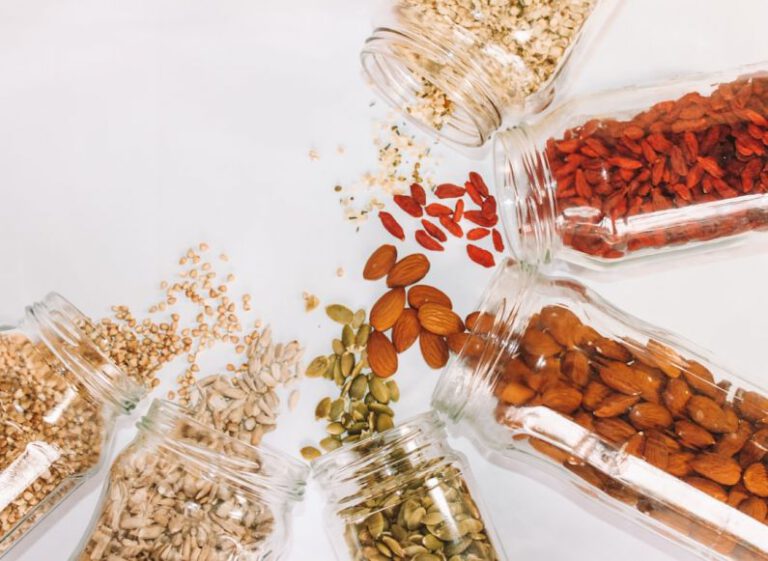Vegan Athlete? What You Need to Know
As the popularity of plant-based diets continues to rise, many athletes are choosing to adopt a vegan lifestyle. While there may be concerns surrounding adequate nutrient intake and performance, being a vegan athlete is entirely achievable with proper planning and understanding of key factors. In this article, we will delve into what vegan athletes need to know to optimize their performance, recovery, and overall health.
Fueling Your Body: The Importance of Macronutrients
One of the primary concerns for vegan athletes is ensuring they are getting an adequate intake of macronutrients – namely, carbohydrates, protein, and fats. Carbohydrates are essential for providing the energy needed for physical activities, while protein is crucial for muscle repair and growth. Fats, particularly healthy fats such as those found in nuts and seeds, play a role in hormone production and overall health.
Plant-based sources of protein include legumes, tofu, tempeh, quinoa, and seitan. By incorporating a variety of these sources into your diet, you can ensure you are meeting your protein needs as a vegan athlete. Additionally, consuming a sufficient amount of carbohydrates from sources such as whole grains, fruits, and vegetables will help fuel your workouts and support recovery.
Micronutrients: Key Vitamins and Minerals for Vegan Athletes
In addition to macronutrients, vegan athletes need to pay attention to their intake of key vitamins and minerals that are commonly found in animal products. Vitamin B12, for example, is primarily found in animal foods, so vegans may need to supplement or consume fortified foods to meet their needs. Iron is another nutrient of concern for vegan athletes, as plant-based sources of iron are not as readily absorbed by the body as animal sources. Consuming vitamin C-rich foods alongside iron-rich foods can help enhance iron absorption.
Calcium, zinc, and omega-3 fatty acids are other nutrients that vegan athletes should pay attention to. While calcium is commonly associated with dairy products, plant-based sources such as fortified plant milks, tofu, and leafy greens can help meet calcium needs. Zinc, important for immune function and metabolism, can be found in legumes, nuts, and seeds. Omega-3 fatty acids, crucial for brain health and inflammation control, can be obtained from sources like flaxseeds, chia seeds, and walnuts.
Hydration and Recovery: Optimizing Performance as a Vegan Athlete
Hydration is a critical aspect of athletic performance, regardless of dietary preferences. Vegan athletes should pay close attention to their fluid intake before, during, and after workouts to maintain optimal hydration levels. Water is the best choice for hydration, but electrolyte-rich beverages can be beneficial during intense or prolonged exercise sessions.
Optimizing recovery is also key for vegan athletes to support muscle repair and growth. Consuming a post-workout meal or snack that includes a combination of carbohydrates and protein can help replenish glycogen stores and promote muscle recovery. Plant-based options such as a smoothie with fruit and plant-based protein powder or a bowl of quinoa with roasted vegetables can provide the necessary nutrients for recovery.
Meal Planning and Preparing: Setting Yourself Up for Success as a Vegan Athlete
Meal planning and preparation are essential for vegan athletes to ensure they are meeting their nutritional needs and fueling their bodies for optimal performance. By taking the time to plan out meals and snacks that are balanced in macronutrients and rich in vitamins and minerals, vegan athletes can set themselves up for success.
Include a variety of plant-based foods in your diet to ensure you are getting a wide range of nutrients. Experiment with different recipes and cooking methods to keep meals interesting and flavorful. Consider working with a registered dietitian who specializes in sports nutrition to develop a personalized meal plan that meets your energy and nutrient needs as a vegan athlete.
Incorporating Supplements: Enhancing Your Performance and Health
While a well-planned vegan diet can provide all the nutrients needed for optimal health and performance, some athletes may benefit from incorporating supplements into their routine. Vitamin B12, vitamin D, and omega-3 fatty acids are common supplements recommended for vegan athletes to ensure they are meeting their needs.
Before starting any supplements, consult with a healthcare provider or dietitian to determine if they are necessary for you based on your individual needs and goals. Remember that supplements should not replace a balanced diet but rather complement it to fill in any potential nutrient gaps.
Fueling Your Passion: Thriving as a Vegan Athlete
Being a vegan athlete is not only achievable but can also be incredibly rewarding. By paying attention to your macronutrient and micronutrient intake, staying hydrated, optimizing recovery, and planning your meals effectively, you can thrive as a vegan athlete. Experiment with different foods, recipes, and training strategies to find what works best for your body and goals.
Remember that everyone is unique, and what works for one athlete may not work for another. Listen to your body, track your progress, and make adjustments as needed to support your performance and overall well-being. With the right knowledge, planning, and dedication, you can successfully navigate the world of vegan athleticism and reach new heights in your fitness journey.






